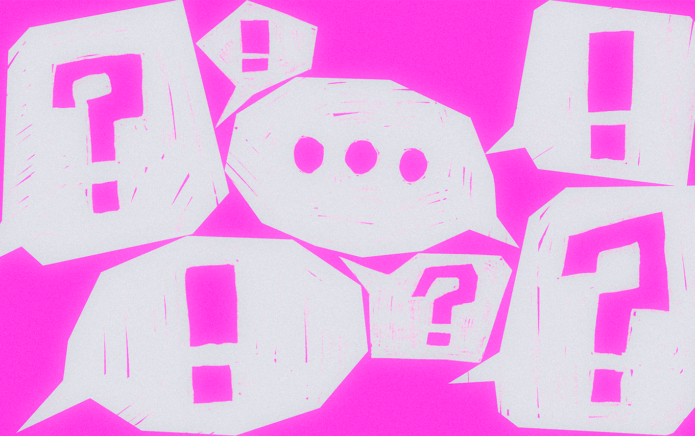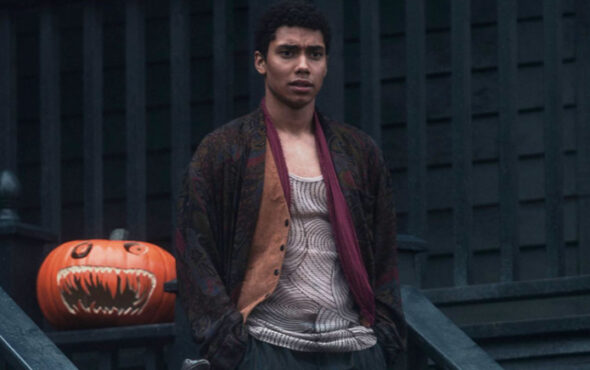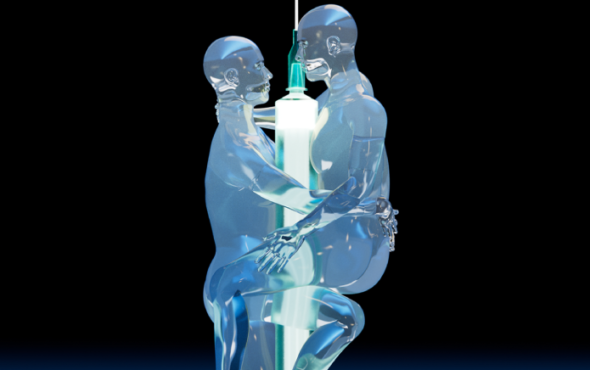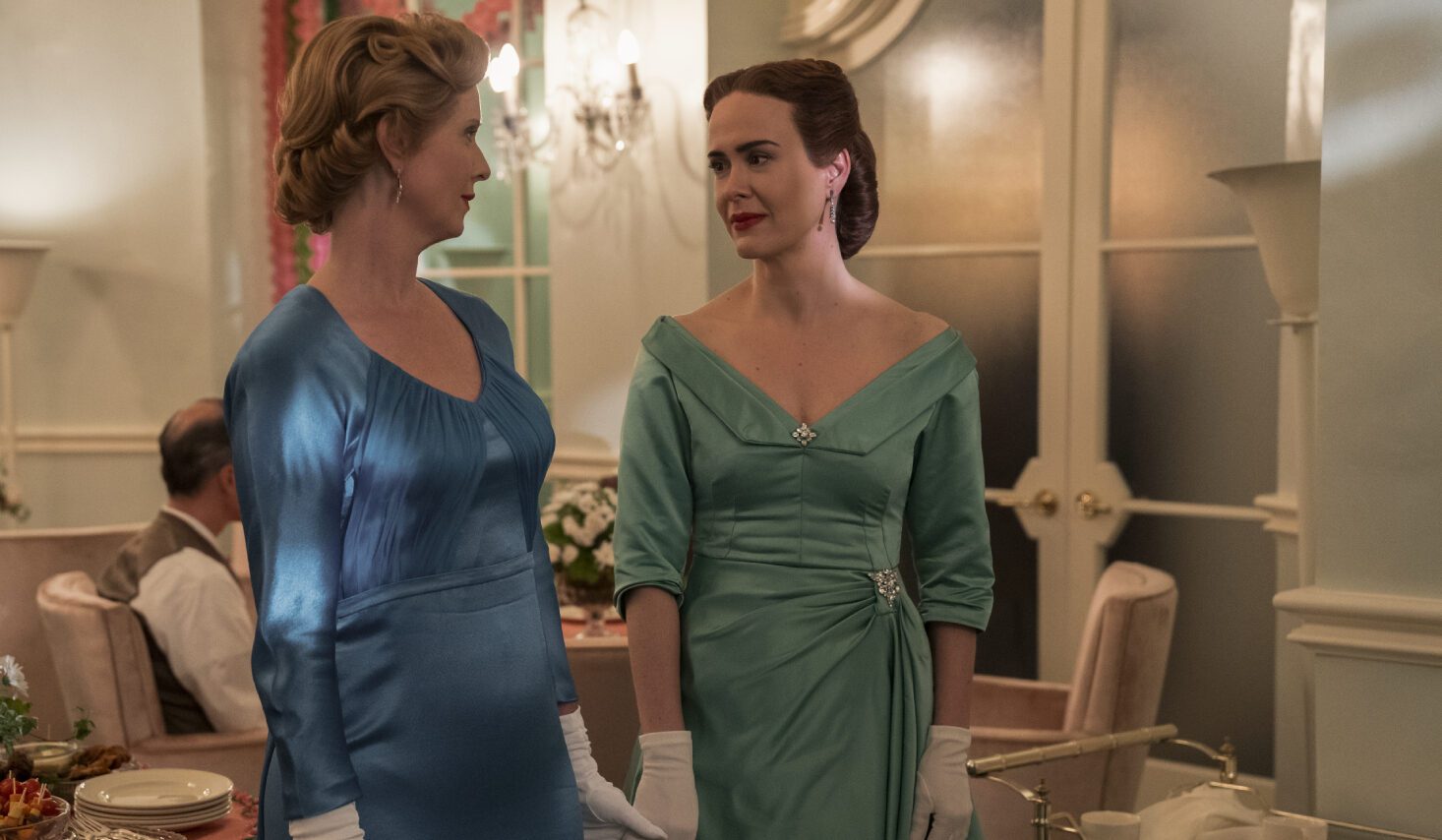
Last year, in the middle of lockdown when we were all desperate for new TV to devour, Ryan Murphy dropped Ratched. Before I even watched the series, I’d seen hundreds of TikTok’s montaging its camp, glamorous and periodically horrifying scenes. Gwendolyn Briggs and the titular character Mildred Ratched, who fall deeply in love with each other against all odds, caught my attention.
Ryan Murphy has a way of creating horror with clever social meaning that teaches us something about the world we live in and how it’s set up to fail minorities. Murphy has always stood up for anyone who sits outside of social norms – his meditations on class, sexuality and gender are often underrated, shrouded in nail-biting horror plot lines which temporarily distract us from the deeper meaning.
Set in a very stylised, Murphian vision of 1950s America, Ratched is another great example of the producer’s penchant for a powerful queer love story that battles against all odds and – just about – wins. Mildred Ratched is a nurse with a troubled past and Gwendolyn Briggs is a powerful career woman who has fashioned herself a so-called ‘lavender marriage’. This is the name of a marriage between two LGBTQ+ people, allowing them to explore and develop queer relationships whilst appearing to be happily married and heterosexual.
Gwendolyn and Mildred’s relationship, nicknamed Mildolyn, is full of elements that were extremely relatable for me and a lot of other LGBTQ+ folk. Mildred’s coming out moment is one of the most touching and powerful pieces of LGBT+ television I have ever seen. You can truly tell that Sarah Paulson and Cynthia Nixon, both in LGBTQ+ relationships themselves, helped produce the show. Plus, it comes from the mind of lesbian journalist Lana Winters (the ‘sapphic reporter’).
The show is incredibly authentic, and avoids the usual tropes LGBTQ+ representation – particularly of women – often falls into. There is not one moment where Mildred and Gwen’s relationship feels fetishized or tokenistic, and the trope of one or both of the queer characters in the relationship passing away in a heartbreaking, tragic twist doesn’t happen (The Haunting of Bly Manor, I’m looking at you!).
Firstly, Mildred comes out rather late in life. It is her encounters with a man that make her realise that she is actually interested in women, and her journey towards this revelation is slow and incredibly poignant. The first time Gwendolyn takes her to a 1950s sapphic bar (that I would love to visit), she is terrified. She panics and runs.
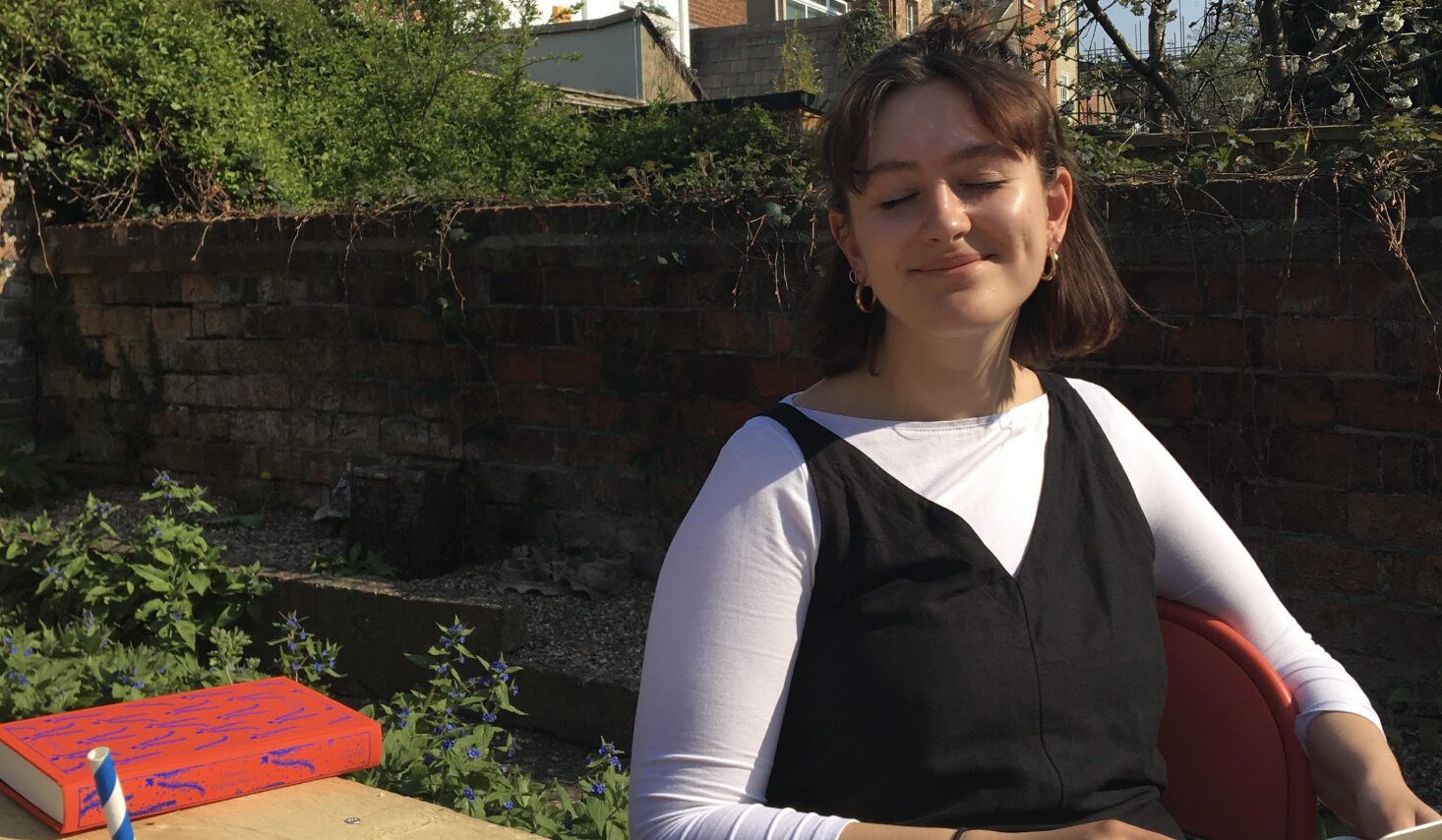
She later confesses to Gwendolyn that she has feelings for her, she just doesn’t quite understand what they are yet. So many of us can relate to this feeling. Gwen takes her for oysters, drives her on road trips, takes her to the theatre – it’s a pleasure to witness the freedom, empowerment and enjoyment leaning into her queer sexuality offers both Mildred and her love interest. It is not often that we get to see queer joy like it.
The first time Mildred eventually comes out, it is to a male worker at the hospital who is asking her on a date. He is someone who she deeply trusts, and has helped her to help two LGBTQ+ characters escape a difficult situation before. Her words are so touching: she ‘is the kind of woman who prefers the company of other women’.
These words rang in my ears for days after watching that episode. It captures the vulnerability but also the power of that first moment when you come out, and find someone who you trust enough to share that part of you with. It made me feel ready and like I had the language to come out to people I perhaps hadn’t been brave enough to before.
Secondly, I loved the imagery of finding a community as Mildred and Gwendolyn build their own full of strong women, both LGBTQ+ and straight. The final scenes where they lounge in the sun in Mexico are truly divine to watch, you can practically feel the warmth of both the sun and the community that they create. It demonstrates the impact of finding a beautiful, uplifting group of people around whom you can embrace your authentic self.
The imagery of two femme-presenting women, thriving in their relationship in a period when we are told it was impossible is quite simply stunning. I will rewatch the series time and time again, to see myself and others in their blossoming relationship and sexualities.
Representation really is important, and in Ratched it is found in the most unlikely of places – a horror series based on the origin story of a character from a book written in 1962. Thank you, Gwendolyn and Mildred, for helping me feel queer joy.
Sophie is an ambassador with Just Like Us, the LGBT+ young people’s charity. If you’d like to volunteer to speak in schools on their Ambassador Programme, sign up now.
